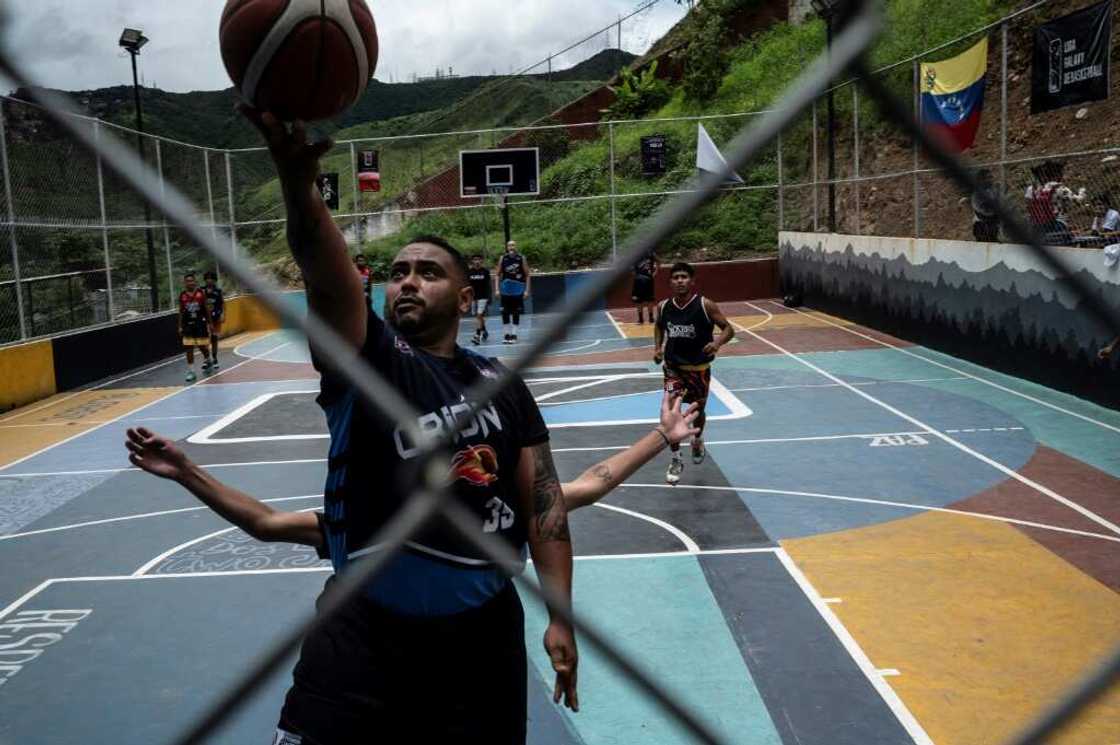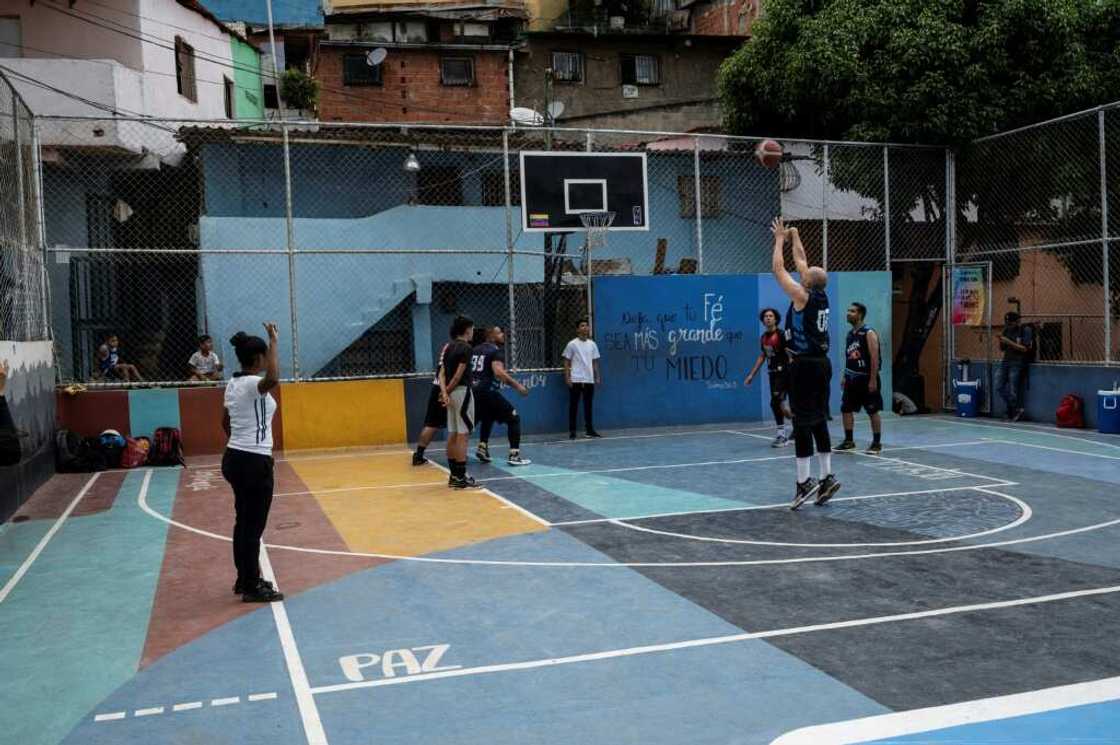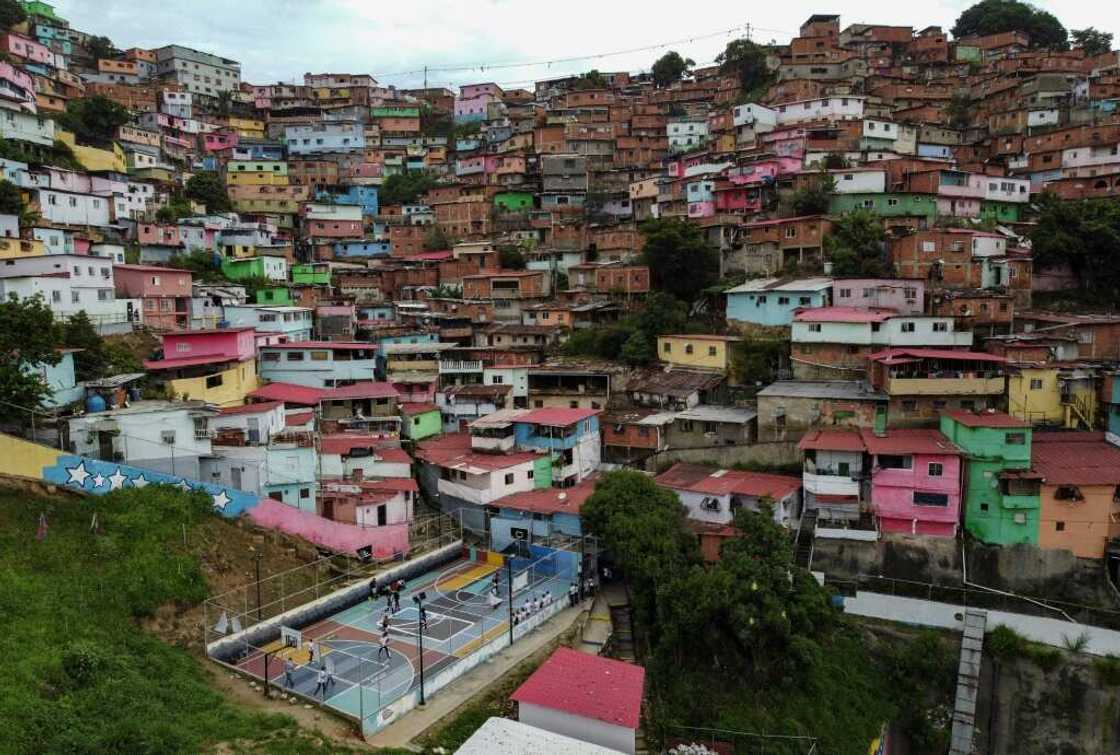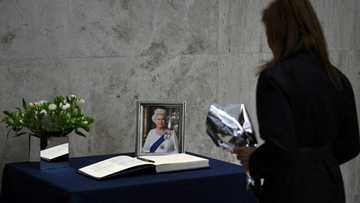Refereeing basketball to escape violence in Venezuela

Source: AFP
PAY ATTENTION: Click “See First” under the “Following” tab to see Legit.ng News on your Facebook News Feed!
Venezuelan Yorsibeth Teran scans the court as players scream at her to blow her whistle while locals watch, some drinking coffee.
She is one of 20 young people from a Caracas neighborhood engulfed by violence that have been trained as basketball referees by a local NGO.
"I want to make my parents proud and for the kids in the neighborhood to look up to me as an example to follow, knowing that they don't have to be thieves, they can be referees or players," the 18-year-old told AFP.
The Caracas Mi Convive NGO has trained dozens of young people in the impoverished El Cementerio neighborhood in refereeing, bakery, confectionary, hairdressing and graphic arts.
In El Cementerio, which is famous for its huge cemetery, the entrance to the recently painted basketball court is emblazoned with the words: "We are playing for a world of more love and less violence."
It adds: "Let your faith be greater than your fear."
PAY ATTENTION: Share your outstanding story with our editors! Please reach us through info@corp.legit.ng!
In July 2021, residents of El Cementerio and neighboring areas were paralyzed with fear as 2,500 police officers launced an operation that resulted in two days of shoot-outs with local criminals.
"I had a terrible experience during the clashes between gangs and police," said Teran.
Four police officers and 22 locals died during the operation.
Since then, Teran trained as a baker but she also learnt how to referee basketball matches.
'Corridor of death'

Source: AFP
Venezuela has one of the highest rates of violence in the world, with 11,000 violent deaths in 2021, according to the local violence observatory.
It has the seventh highest murder rate in the world with almost 41 per 100,000 inhabitants.
To get to the basketball court, people have to use a passageway known as "the corridor of death" due to it being used by gangs.
"Many people are afraid to walk this way because you never know when there could be a clash," said Saray Figueredo, who became an activist after the death of her older brother, a gang member.
"You could lose your life because of a stray bullet," she added.
Figueredo is trying to change the image of a neighborhood marked by criminality and extreme poverty.
In Venezuela, more than three-quarters of the population live in extreme poverty, according to a report by the Andres Bello Catholic University.
"We want people to see the other side of the coin, the side where young people are productive," said Figueredo.
New threat
It is a Saturday and basketball coach Miguel Ruiz shoots a hoop during a match where his 26 students are working as the referees and table officials.
They are learning about the International Basketball Federation's rules, officials' signals, time-keeping and how to manage a game.
Some of the students have been in trouble for taking drugs or carrying weapons.
"We try to get them away from this situation and into the basketball world," said Ruiz.

Source: AFP
However, there is another threat around the corner as new criminal groups look to move into the territory vacated by those "neutralized" in 2021.
"Insecurity has increased, we live in fear, now they steal and many things happen," said one student, who did not give a name.
"Before they did not steal because it wasn't allowed (by the gangs). It wasn't a better life but it was calmer."
Source: AFP





